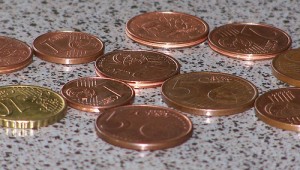
“How much money do we have?” my seven-year-old daughter Ella asked, off-handedly, the way she just said, “What’s for breakfast?”
“None of your business,” I said, something I vowed I’d never tell my kids before I became a mom but find myself doing all the time.
My husband James was more diplomatic. “That’s grown-up information,” he said. “All you need to know is we have enough.”
“Do we have a million dollars?” Ella persisted. “How much is our house worth? How much do we have in the bank?
“That’s not something you need to worry about,” James said.
“Are we rich?”
“No,” he said. “But we’re not poor, either.”
I slid her bowl of oatmeal onto the place mat, and that was the end of the conversation—for now.
I’ve always been struck by the secrecy about money in our society. In middle and upper-middle class circles, anyway.
When I was a kid, I knew exactly how much money our family had–how much our house was worth, my mother’s salary as a secretary, our only income for a family of four. I knew how much money we had in the bank, too, which is why I took a job at A&W Rootbeer Stand when I was fourteen. When I got to college, at Columbia, I was shocked that none of my fellow students knew anything about their parents’ finances. I vowed that wouldn’t happen when I had kids, but it just did.
Ella is savvy about money, though, in ways I couldn’t have imagined when I was seven. As the daughter of an economist, she takes part in conversations about currency exchange at the dinner table. She uses the phrase “opportunity cost” when deciding whether to take a dance class.
And the other night, when we strolled on the Downtown Mall after dinner, she begged for a bag of flavored popcorn from an almost empty store. When I said no, she laid our her argument: “We need to shop there to keep the store in business. It will boost the economy.” I didn’t believe it, but I gave in anyway.
Photo: Pingo 1968 via Flickr